In the dynamic area of modern architecture and home design, uPVC windows have garnered significant attention and favour among homeowners, builders, and architects alike. These windows have earned their place in the limelight due to their benefits, ranging from energy efficiency to enhanced aesthetics. However, before delving into the process of selecting and installing these windows, it’s important to comprehensively understand both their costs and the advantages they bring to the table.
Post your Requirement
Understanding uPVC Windows:
Unplasticized polyvinyl chloride, commonly known as uPVC, is a robust and durable material that finds extensive use in the manufacturing of windows. What distinguishes these windows is their fusion of remarkable characteristics, including exceptional longevity, low maintenance requirements, energy saving, and versatility in design. These attributes position the uPVC window as a preferred choice for a variety of structures, be it residential dwellings or commercial complexes.
Cost Considerations:
The initial cost of uPVC windows is often a primary factor that captures the attention of potential buyers. While it’s true that these windows might present a higher upfront investment compared to traditional alternatives such as wooden windows or aluminium windows, a deeper examination uncovers the long-term advantages that offset this initial expense. The energy efficiency of these windows leads to notable reductions in energy consumption, resulting in lower utility bills over the years. Moreover, its durability minimizes maintenance expenses, as these windows are resistant to rot, rust, and fading. When considering property value, the inclusion of these soundproof windows can enhance the attractiveness of a home or building, potentially leading to a higher resale price.
Benefits of uPVC Windows:
- Energy Efficiency and Insulation: These windows focus on energy efficiency. Their exceptional insulation properties serve as a barrier against external temperature variations, helping maintain a consistent indoor temperature. That translates into decreased reliance on heating and cooling systems, ultimately reducing energy consumption and contributing to a greener living environment.
- Low Maintenance: One of the standout advantages of these windows is their minimal maintenance requirements. Unlike traditional materials like wood, uPVC does not deteriorate over time due to rot, rust, or fading. This attribute ensures that these acoustic windows retain their appearance and structural integrity with little effort on the homeowner’s part.
- Noise Reduction: The hustle and bustle of urban living can often encroach on the tranquillity of our indoor spaces. The uPVC window addresses this issue through design features such as multi-chambered frames, laminated glass, and optional secondary glazing. These elements create a formidable barrier that reduces external noise, fostering a more peaceful and serene indoor ambience.
- Durability and Weather Resistance: The durability of uPVC material is a result of its resistance to various weather conditions. Moisture, a common adversary of many materials, is no match for uPVC. This resilience ensures that these windows remain unaffected by damp environments, maintaining their structural integrity for years.
- Customisation and Aesthetics: A factor in the popularity of these windows is their ability to cater to diverse aesthetic preferences. With a wide variety of styles, colours, and finishes, these acoustic windows can be seamlessly integrated into various architectural designs, enhancing the interior and exterior aesthetics of a structure.
Tips For Choosing Wisely:
When considering the adoption of a uPVC window, several factors come into play:
- Consider Your Needs and Preferences: Understand the specific needs of your space. Determine factors such as the window style, size, and design that would best complement your architectural aesthetic and functional requirements.
- Energy Efficiency Ratings: Look for windows with high energy efficiency ratings. Check for labels that indicate their U-value and Solar Heat Gain Coefficient (SHGC), as these metrics reflect the windows’ insulation and heat-blocking capabilities.
- Glazing Options: Investigate the glazing options available. Consider double or triple glazing with inert gas fills, such as argon or krypton, between the panes. Low-emissivity (Low-E) coatings can further enhance insulation by reflecting heat.
- Noise Insulation: If noise reduction is essential, focus on features like multi-chambered frames, laminated glass, and secondary glazing. These elements create barriers against external noise pollution, ensuring a peaceful indoor environment.
- Frame Quality and Profile: Evaluate the quality of the uPVC frames. A well-constructed frame with multiple chambers enhances insulation and durability. Opt for profiles with materials like galvanised steel for added strength.
- Security Features: Prioritise safety by choosing an uPVC window with robust locking mechanisms and security features. Multi-point locking systems and anti-lift devices are examples of security-enhancing attributes.
- Maintenance Considerations: One of the advantages of uPVC is its low maintenance requirements. However, enquire about specific cleaning and maintenance instructions to ensure its longevity and optimal appearance.
- Customisation Options: Explore the range of customisation options available. From colours and finishes to hardware choices, select elements that align with your interior and exterior design preferences.
- Professional Installation: Proper installation is crucial for the performance and durability of these windows. Ensure that the installation is carried out by experienced professionals to prevent air leaks and other issues.
- Supplier Reputation: Choose a reputable and reliable supplier or manufacturer. Look for reviews, recommendations, and references to ensure that you’re getting quality uPVC material that meets industry standards.
- Long-Term Investment: Remember that choosing these windows is a long-term investment. While upfront costs might be higher than other materials, the energy savings, reduced maintenance, and enhanced property value can offset the initial expenses over time.
By carefully considering these tips and tailoring your choices to your specific needs, you can confidently select an uPVC window that enhances the aesthetics of your space and provides energy savings, noise reduction, security, and overall comfort for years to come.
Conclusion:
As the world embraces the advantages of uPVC windows, it’s crucial to embark on this journey armed with a comprehensive understanding of their costs and benefits. The durability, energy savings, noise reduction, low maintenance, and customisation options of an uPVC window position them as an investment that contributes to the comfort, aesthetics, and value of a property. By approaching the selection process thoughtfully and keeping the long-term benefits in mind, homeowners can make an informed decision that elevates their living spaces and aligns with their aspirations for a sustainable and harmonious lifestyle.

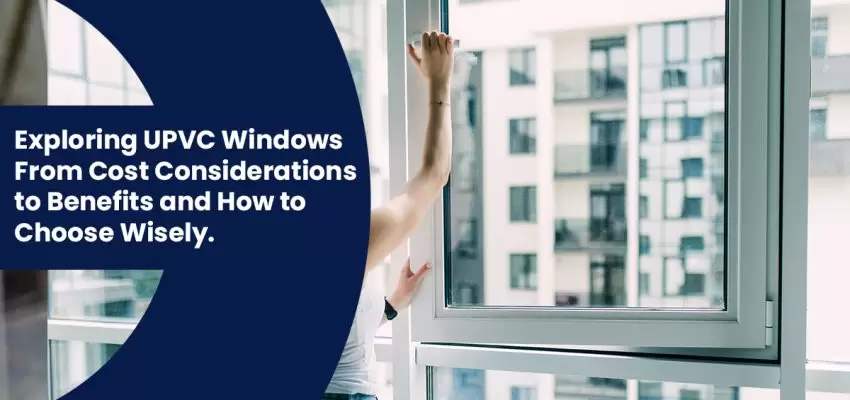
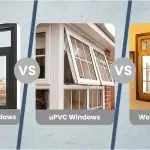
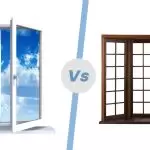
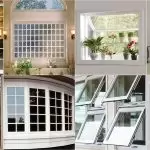
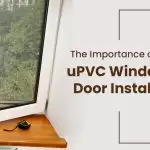

















Post A Comment